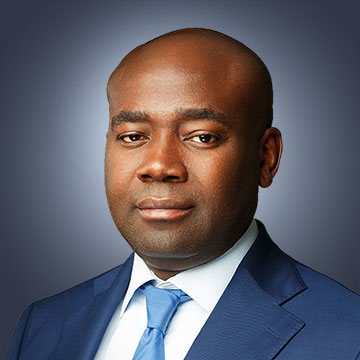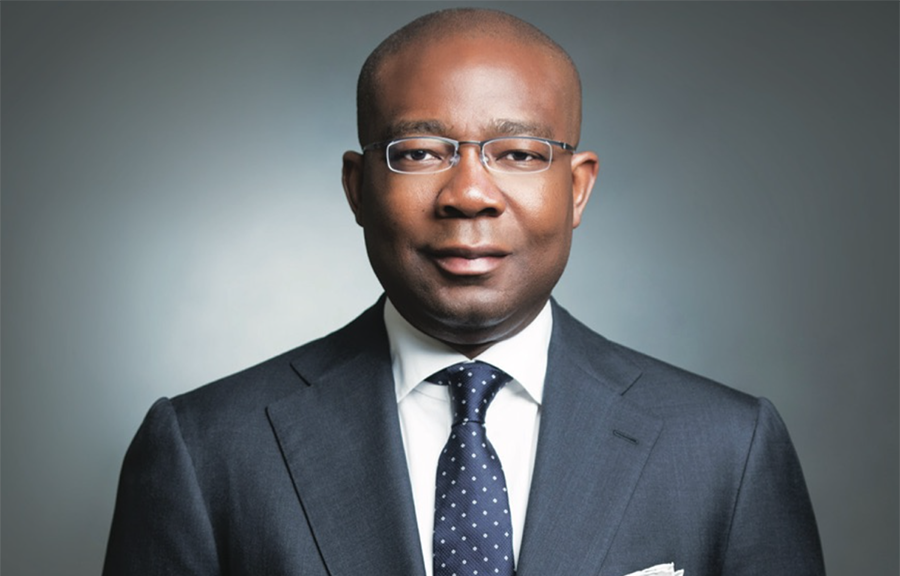Adopt-a-Healthcare-Facility Programme (ADHFP): An interview with Aigboje Aig-Imoukhuede, Chairman, ABCHealth
July 27, 20201.5K views0 comments
African governments alone cannot tackle the deep challenges in the continent’s health sector. For success to be guaranteed, Africa’s private sector must be engaged and involved. Indeed, some of the greatest progress towards the health related Millennium Development Goals would not have been possible without support from the Private Sector – in the last 15 years African business leaders and companies have significantly stepped up to the plate in the area of health sector philanthropy. Continued private sector involvement is key if the global ‘Health for All’ target actioned on the foundation of Primary Health Care (PHC) will be achieved.
The 1978 United Nations Alma Ata Declaration, which identified PHC as a necessary condition for universal access to acceptable levels of healthcare, has not taken root in Africa, 42 years after. In fact, the continent is still grappling with basic issues including building the capacity of training institutions; instituting universal coverage health insurance schemes; deploying technology; updating national health policies and a host of others.
ABCHealth, the coalition of African business leaders and companies focused on better health outcomes for the African continent, was established by the Aliko Dangote Foundation and GBCHealth to address challenges such as these.
Read Also:
ABCHealth says it is committed to the transformation of Africa’s healthcare system, originating universal access at the primary level, and its chairman, Aigboje Aig-Imoukhuede, who also chairs GBCHealth, recently provided deep insights into a bold new idea to transform Nigeria’s primary health care sector named ‘The Adopt a Primary Health Facility Programme’ which will bring many benefits, including the provision of quality healthcare to people regardless of geographic, social or financial barriers. The programme has the backing of the Private Sector Health Alliance of Nigeria (PSHAN) founded by Aliko Dangote, Jim Ovia and Aigboje Aig-Imoukhuede.
As one of the key drivers of this programme, ABCHealth has the consent of GBCHealth to publish its recent interview with Aig-Imoukhuede on this initiative.

Excerpt:
- What’s your vision for ADHFP? What’s the anticipated timeline for creation/implementation and importantly what’s the potential impact for Nigeria? For Nigerians?
The ‘Adopt-A-Healthcare-Facility-Programme’ (ADHFP) is driven by my belief that the African continent will continue to carry the painful and shameful burden of high disease mortality long after the rest of the world has overcome such challenges unless we address the poor state of healthcare systems at the primary level.
The goal is to establish a chain of Primary Healthcare Centers (PHCs), across Nigeria’s 774 Local Government Areas and apply market-based reforms to provide low-cost health services at decent standards to the poor and vulnerable. We expect to complete the Program design phase by Q3 2020 and commence pilots before the end of the year.
The ADHFP is a multi-impact initiative with several benefits for Nigeria including:
- Reduction in Mortality Rates
- Creation of new jobs, entrepreneurship opportunities and health-focused start-ups
- Improved public sector accountability
- Female gender empowerment
- Increased uptake of Micro-Health Insurance
- Successful Health Policy Reform
- Why ADHFP – focusing on healthcare facilities / systems / standards / infrastructure – and why now? How did the C19 pandemic influence this decision? How will C19 inform the design of the program? What will change as a result of this initiative?
The ADHFP was conceived early in 2019 well before I had ever heard of the word ‘Coronavirus’. Interestingly, whilst championing the Global Citizens global goal live campaign in Davos this January, I made the case that it is unacceptable for Africa to continue suffering the effects of pandemics like HIV Aids and Malaria long after the rest of the world has put them to bed. I said Nigerians and other stakeholders must launch a movement to revive our ailing healthcare sector starting by fixing the 80% of our 30,000 primary health care facilities, which are currently comatose.
COVID-19 is a burning platform for change and reform in Africa’s health sector.
With COVID-19 beaming a spotlight on the weaknesses and inadequacies of our health system, the pandemic has simply reinforced, with devastating effect, the reasons ADHFP was conceptualized in the first place. As the Pandemic spreads, it has become evident to Nigerians that our primary health system must be fixed with urgency, otherwise our people will continue to die needlessly.
- Why a private sector led initiative? What is the business case/value proposition for ‘Angels’ to adopt one or more PHCs? Have conversations started, and if so, what’s the response? Do you think this is an easier ‘sell’ in today’s environment, in the midst of the pandemic, when health and healthcare are the recurrent lead stories and priorities?
The government’s track record on annual health spending falls far short of the 15% Abuja Declaration to address the heavy burden of HIV, AIDS, TB and Malaria agreed upon by African Heads of State in 2001. Revenue challenges due to global commodity prices as well as poor governance and corruption have also constrained what is spent on health by government. Funding must come from other sources such as foreign assistance and the Private sector. But beyond funding, Nigeria’s primary health sector is largely the responsibility of the Local Government tier of government, which suffers from weak capacity, poor governance, and an absence of accountability.
So beyond funding, we will continue to perform abysmally at the primary healthcare level without the involvement of capable and engaged citizens in the running and administration of our primary health system, hence the need for Private Sector organized participation.
The programme will be implemented as a Private-sector-driven initiative. ADHFP will be sponsored by Angel Investors who could be individuals or institutions. Each “Angel” will take responsibility for one or more PHCs. They will build and operate the PHCs for the period of adoption under strict rules and guidelines.
Serious work is ongoing to make this vision a reality. The work is led by the Private Sector Health Alliance of Nigeria (PSHAN) founded by Aliko Dangote, Jim Ovia, myself and a number of notable organisations who have established themselves as serious actors in the field of Nigerian philanthropy and have rallied to the cause. They include: Global Citizen, Africa Business Coalition for Health (ABCHealth), Bill & Melinda Gates Foundation, United Nations Economic Commission for Africa (UNECA), World Bank, International Finance Corporation (IFC), MTN Nigeria Plc, Dangote Group, Zenith Bank, Access Bank, Stanbic-IBTC Bank, PwC, Cisco, Ford Foundation, Nigerian Stock Exchange, Flying Doctors Nigeria, Africa Practice, Cedar Advisory Partners, GBCHealth, Health Federation of Nigeria, Health Law, Eti-Osa Local Government, JNC International Ltd, Johnson & Johnson, Justice in Healthcare, Lagos State Government, MSD for Mothers, Nigeria Economic Summit Group (NESG), ONE Campaign, PharmAccess Foundation, Women-At-Risk International Foundation as well as the SSA to the President on Sustainable Development Goals among others.
- What is your vision for sustainability of these programmes beyond the ‘period of adoption’ by Angels? How will these fit within the current MOH system?
Whilst private sector players have a visible role to play in healthcare delivery, healthcare provision in Nigeria is a concurrent responsibility of the nation’s 3 tiers of government. Since the PHCs are integrated into Nigeria’s political system, a proper understanding of the system and safe navigation though its actors are prerequisites for success.
It is essential to remain clear-sighted about the limitations to private sector championed public reforms. Without government champions, health sector reforms will fail.
We will work with actors at various levels of Government, particularly at the State level, where the leverage for reform is greatest and the spending will take place. Reform champions in government should be identified and engaged vigorously at the levels of Local Government Chairpersons, the Nigerian Governors’ Forum, Federal and State Ministries of Health, the National Assembly and the Presidency to advocate for increased political commitment to executing changes and facilitating effective Primary Care delivery.
To ensure that ADHFP fits seamlessly into Nigeria’s legal system, our design phase incorporates a thorough evaluation of the regulatory, institutional, and legal landscape to identify regulations, legislation and on-going reforms that will support or hinder the implementation of the ADHFP.
- What are some of the challenges you are anticipating and how are you planning to mitigate those? Do you see this as a replicable model for other countries?
The ADHFP is a ground-breaking, innovative, private-sector driven initiative, but there are a number of risks and challenges associated with its development and implementation.
At the moment, the most significant risk is the on-going COVID-19 pandemic, with attendant effects arising from restrictions in movement, risks to life and the damage to the Nigerian economy. Fortunately, a number of tried and tested business continuity strategies have emerged that we can apply to mitigate pandemic risks.
Another key risk to be mitigated is the possible loss of enthusiasm by ADHFP sponsors, donors and implementing partners. These are mission critical stakeholders whose interest must be sustained through the highs and lows of reform implementation. Great reliance will be placed on our ability to engage the hearts and minds of donors and implementing partners. Adopting best practices in project management, getting some quick wins and successful delivery of program objectives will go a long way to ensuring that our Angels stay the course.
Another risk is misinformation about the ADHFP. To mitigate this, an effective communication strategy will be developed to ensure PHC host communities are carried along. In addition, traditional institutions, civil society and the Media will be carried along through traditional and technology enabled channels. Extensive stakeholder consultations with both current and past actors at state and local government level are also ongoing with the purposeful intent of getting them to support ADHFP.
Once we have demonstrated that we can effectively manage these risks, I am quite confident that ADHFP will become a model of reference for strengthening primary health care delivery across Nigeria. Indeed, through the Africa Business Coalition for Health (ABCHealth), it is our intention that the initiative will become a flagship community health development strategy in Africa.
- Your legacy already includes building and strengthening Nigeria’s financial and capital markets and the public sector through AIG. Is reimagining the healthcare system the missing piece on the way to a more prosperous Nigeria?
Thank you for your generous compliments. There are many missing pieces required to solve the Nigerian puzzle and I don’t claim to be able to provide answers to all of them. I only try to answer some of them using whatever time and resources the Almighty God has gifted to me.
- What’s your call to action?
It takes leadership for a community to reach its full potential. I know that each of Nigeria’s 774 local government areas is blessed with citizens who have the capacity to transform the quality of primary health care available to their people.
What are we waiting for?
Let’s join forces and become partners in the business of saving lives!

